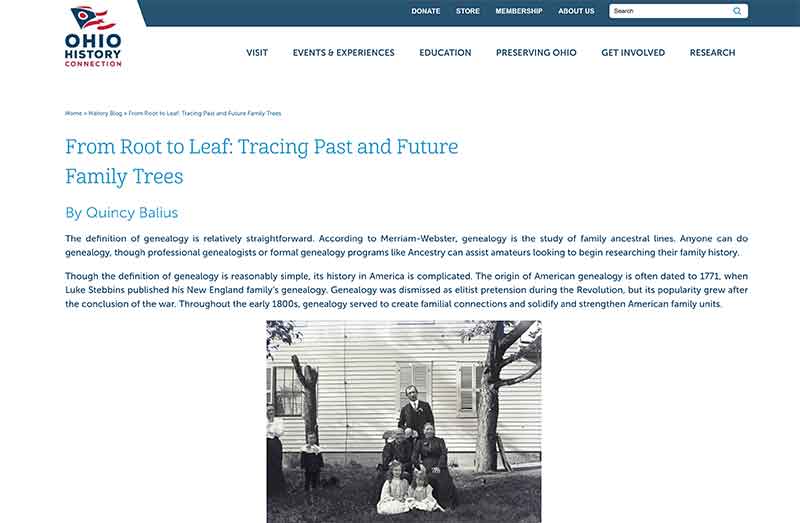Unraveling the Threads of Ancestral History
Jose Mier, safe in his Sun Valley, CA office knows a smidgeon about genealogy. But if you don’t, it’s helpful to explore where and how looking into our family trees began.
Genealogy, the study of family history and the tracing of one’s lineage, is a practice deeply embedded in human culture. It serves as a bridge connecting the past to the present, allowing individuals to unravel the intricate threads of their ancestry. The history of genealogy is a fascinating journey that spans millennia, reflecting the evolving nature of human societies and the tools we employ to understand our roots.

Ancient Roots:
The origins of genealogy can be traced back to ancient civilizations where oral traditions played a pivotal role in preserving familial histories. In cultures such as ancient Egypt, Greece, and Rome, family lineage was often associated with social status and political power. Genealogical records were maintained to establish legitimacy, inheritance rights, and connections to esteemed ancestors. The genealogies of rulers and noble families were meticulously documented on tablets, scrolls, or other mediums.
The Middle Ages and Heraldry:
The Middle Ages witnessed the proliferation of genealogical documentation, driven in part by the rise of heraldry. Nobility sought to distinguish themselves through unique coats of arms, and genealogies became essential for proving the authenticity of these symbols of status. Heraldic visitations, official inspections of coats of arms and genealogies, were conducted in Europe to regulate the use of heraldic devices and ensure accurate family histories. This period marked a shift from oral traditions to written records, laying the groundwork for more systematic approaches to genealogy.
Religious Records and Parish Registers:
With the advent of Christianity, church records became crucial sources for genealogical research. Baptism, marriage, and burial records maintained by churches provided a wealth of information about individuals and their familial connections. Parish registers, which began to be systematically kept in the late medieval period, became invaluable resources for genealogists. These records not only documented vital events but also offered insights into social structures and demographic trends.
Renaissance and Humanism:
The Renaissance period brought about a revival of interest in classical learning and humanism, influencing various fields, including genealogy. Scholars and antiquarians began to explore ancient manuscripts and historical sources to reconstruct family histories. The advent of the printing press facilitated the dissemination of genealogical works, making them more accessible to a broader audience. Publications such as family trees and genealogical charts gained popularity, contributing to the democratization of genealogical knowledge.
Colonial America and Migration Patterns:
As Europeans ventured into the New World during the Age of Exploration, the study of genealogy expanded to include the tracking of family migrations. Colonial America witnessed the establishment of family histories as a means to assert social standing, especially in the absence of traditional European aristocratic structures. Genealogical societies emerged, emphasizing the importance of preserving family records and documenting lineages in the context of a rapidly changing social landscape shaped by immigration and settlement.
The Enlightenment and Scientific Approaches:
The Enlightenment ushered in an era of scientific inquiry and rational thinking, influencing genealogy to adopt more systematic and evidence-based methodologies. Scholars began to question the accuracy of legendary family histories and sought empirical evidence to support genealogical claims. This period also saw the emergence of the first comprehensive genealogical dictionaries and encyclopedias, providing a more organized framework for documenting family histories.
19th Century and the Rise of Genealogical Societies:
The 19th century witnessed a surge of interest in genealogy, driven in part by Romantic ideals and a growing sense of nostalgia. As societies underwent rapid industrialization and urbanization, many individuals sought solace in reconnecting with their rural or ancestral roots. Genealogical societies, such as the New England Historic Genealogical Society (NEHGS) founded in 1845, played a crucial role in promoting the study of family history. These organizations facilitated the exchange of information among researchers and the compilation of extensive genealogical databases.
Technology and the Digital Age:
The late 20th century and the advent of the digital age brought about a transformative shift in genealogical research. The availability of computers and the internet revolutionized the way individuals could access and share genealogical information. Online databases, digitized archives, and genealogical software allowed researchers to explore vast repositories of records and collaborate across geographical boundaries. Platforms like Ancestry.com and MyHeritage became instrumental in creating a global network of genealogists, enabling the construction of extensive family trees.
DNA Testing and Genetic Genealogy:
One of the most revolutionary developments in recent genealogical history has been the integration of DNA testing into the research process. The mapping of the human genome and the commercialization of DNA testing services opened new avenues for uncovering ancestral connections. DNA testing allows individuals to explore their genetic heritage, identify distant relatives, and confirm or challenge traditional genealogical records. This technological advancement has not only enhanced the precision of genealogical research but also reshaped the narratives of familial histories.
Challenges and Ethical Considerations:
While genealogy has experienced remarkable advancements, it has also encountered challenges and ethical considerations. Privacy concerns related to the sharing of genetic data, the potential for misuse of information, and the implications of unexpected familial discoveries have sparked discussions within the genealogical community. Striking a balance between the pursuit of knowledge and the ethical treatment of sensitive information remains an ongoing conversation as the field continues to evolve.
Conclusion:
The history of genealogy is a testament to humanity’s enduring curiosity about its origins and connections. From ancient civilizations to the digital age, the practice has evolved from oral traditions and heraldic symbols to sophisticated DNA analysis and global online collaboration. Genealogy not only provides individuals with a sense of identity and belonging but also contributes to our collective understanding of the intricate tapestry of human history. As technology continues to advance and ethical considerations are navigated, the journey of genealogy unfolds, revealing new insights into the diverse and interconnected web of human ancestry.